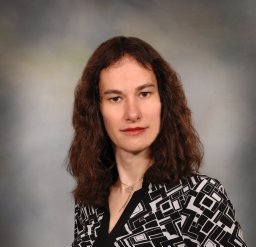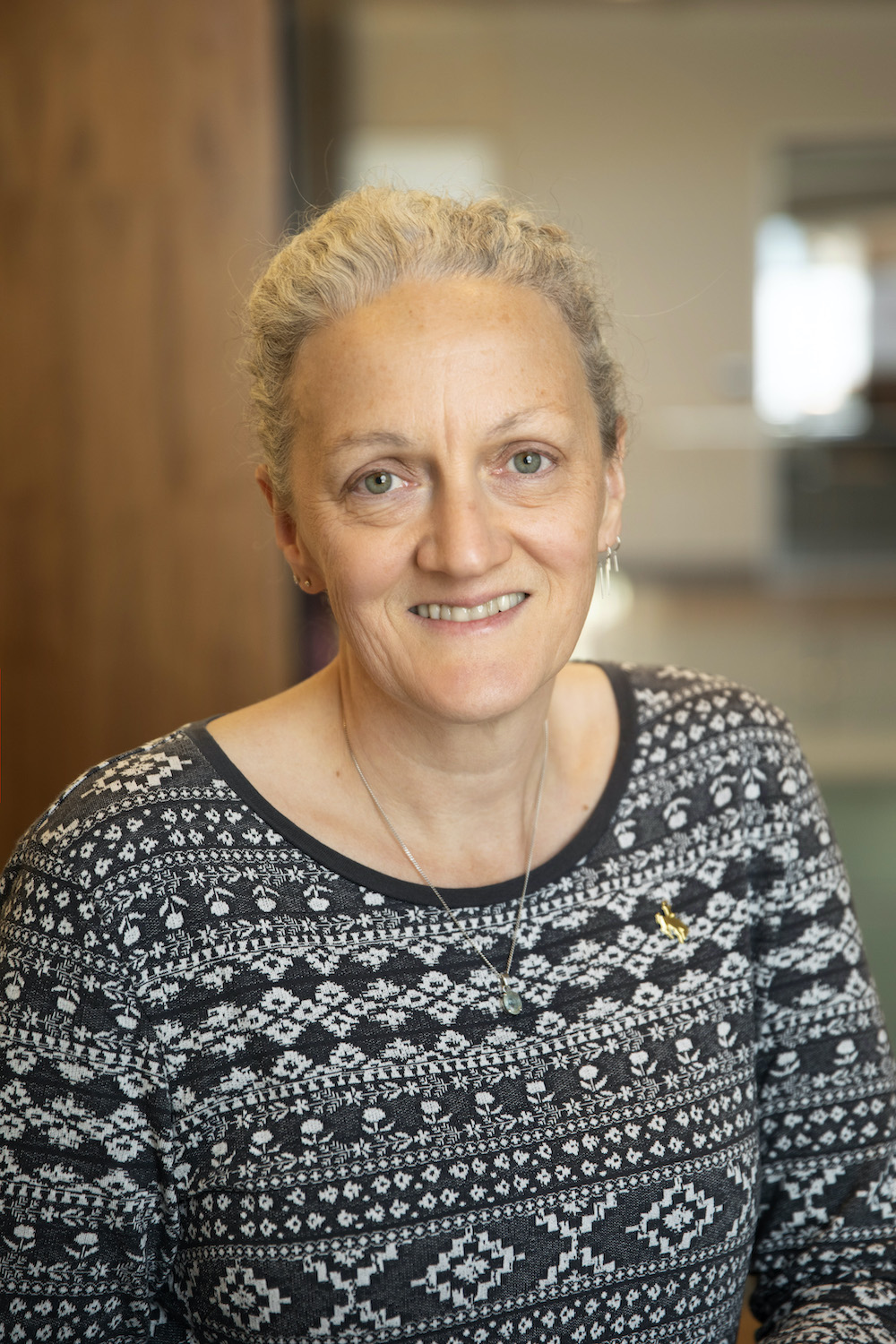
 |
|
|
The Department of Electrical Engineering and Computer Science at the University of Wyoming is offering the EECS Colloquium series as a service to all who are interested in Electrical Engineering and Computer Science. Most seminars are scheduled for Monday 3:10PM -- 4:00PM in EERB 255. For help finding the locations of our seminar meetings, consult the on-line UWyo campus map. For questions about this page or to schedule talks, please contact Diksha Shukla: dshukla@uwyo.edu. Here is a list of seminar schedules. |
EECS Colloquium Schedule, Spring 2024
|

|
EECS Colloquium Information Session with NSA and Opportunities for Students Speaker: Mr. Jason McMahan, NSA Academic Engagement When: 3:00PM ~ 4:00PM, Tuesday, April 16, 2024 Abstract: In this session, Jason McMahan will delve into the intricate dynamics of cybersecurity collaboration between academia and government intelligence. Attendees will gain invaluable insights into the NSA's mission and its pivotal role in safeguarding national security through cybersecurity initiatives. Participants will have the opportunity to explore diverse career opportunities within both the cyber-industry and NSA. Through interactive discussions, Jason will also address relevant cybersecurity issues and respond to inquiries about working for the NSA. Additionally, he will offer insights into navigating path to NSA, providing attendees with a comprehensive understanding of cybersecurity collaboration and pathways to career advancement. Bio: Mr. Jason McMahan is an Industry Relationship Manager at the National Security Agency’s Cybersecurity Collaboration Center and an academic liaison focusing on intelligence analysis for University of Wyoming and Boise State University. Mr. McMahan has over 20 years experience in intelligence analysis and cybersecurity as a government civilian and US Army officer. He has degrees in history, foreign affairs and national security strategy from Dickinson College, the University of Virginia, and the National Defense University. |
|
|

|
EECS Colloquium The New Reality of Extended Reality: Empirical Evaluation of Interaction in XR Speaker: Dr. Robert J. Teather When: 4:10PM ~ 5:00PM, Tuesday, April 16, 2024 Abstract: Extended reality (XR), a catch-all term for virtual reality (VR), mixed reality (MR) and augmented reality (AR) has recently become popular again with the release of low-cost and effective consumer-grade head-mounted displays such as the Meta Quest. The longstanding dream of VR has users interacting with virtual objects as naturally as real ones. In practice, despite technological advances, numerous technical and human factors make this difficult. Modern VR interaction continues to employ naturally-inspired interaction techniques that have changed little since their introduction in the late 80s. Similarly, cybersickness and the lack of tactile feedback when interacting with virtual objects are well-known to limit the effectiveness of VR systems, yet these issues persist today. In this talk, I will discuss my research addressing these three interrelated areas of virtual reality interaction. I will first describe my studies comparing 3D selection interfaces between 3D and desktop systems, and my work in extending a standardized methodology to support fair and direct comparison between these two different modalities. I will then discuss my research group's recent work employing this standardized methodology for evaluating novel 3D selection methods, as well as other projects aimed at enhancing the usability of VR systems through evaluating the effectiveness of cybersickness reduction techniques and novel approaches to VR haptics that employ shape-changing devices and perceptual illusions. I will close by discussing future directions for this work on both improving usability of, and equitable access to, VR technology. Bio: Robert J. Teather is a leading expert in several interrelated areas of human-computer interaction, including interaction techniques and input devices, especially when applied to 3D user interfaces for virtual reality. He holds a PhD and MSc in Computer Science (York University, Canada), as well as a BSc in Computer Science (Brock University, Canada). His PhD work focused on developing standardized methods for the empirical comparison of input devices for 3D interaction – primarily in order to compare mouse and 3D tracker-based input. To this end, Dr. Teather has established himself as an expert in comparing drastically different input devices and interaction techniques for common fundamental interaction tasks in VR (e.g., target selection), across varying system configurations (e.g., display properties such as stereo graphics, or system properties such as latency). His research is supported by Natural Sciences and Engineering Research Council of Canada (NSERC) and the Canada Foundation for Innovation. He has also served in lead conference organization roles (e.g., general chair, technical program chair) in events including the IEEE Conference on Virtual Reality & 3D User Interfaces, ACM Virtual Reality Software and Technology, and the ACM Symposium on Spatial User Interaction. |
|
|

|
EECS Colloquium Enhancing Interpersonal Interaction using Psychophysiological Measurements Speaker: Dr. Vesna Novak, University of Cincinnati, Cincinnati, OH When: 4:10PM ~ 5:00PM, Wedensday, April 17, 2024 Abstract: Psychophysiological measurements are recordings of the human body’s reactions to psychological states: for example, increased sweating due to mental stress. Since such measurements can be taken unobtrusively and automatically, they can be used to dynamically improve human-machine interaction. For example, an intelligent car can use them to detect driver drowsiness, and a computer game can use them to detect player boredom. While such techniques have generally been used in single-user scenarios, they can also be expanded to scenarios involving interpersonal collaboration, communication, and competition. In such scenarios, humans are known to exhibit physiological synchronization (e.g., subconsciously matching each other’s respiration rates), which can be analyzed as an additional, rich source of information. This presentation will thus discuss our work on psychophysiological measurements in conversation, competition, and cooperation. It will conclude with a discussion of the challenges involved in demonstrating the practical usefulness of such technologies. Bio: Vesna Novak is an Associate Professor in the Department of Electrical and Computer Engineering at the University of Cincinnati, with secondary appointments in Biomedical Engineering and Computer Science. She received her diploma and PhD in electrical engineering from the University of Ljubljana in 2008 and 2011, respectively. She was a postdoctoral fellow at ETH Zurich, Switzerland, from 2012 to 2014, and then an Assistant and Associate Professor at the University of Wyoming from 2014 to 2021. Her research interests include affective computing, rehabilitation robotics, wearable robotics, serious games, and human activity recognition. She is currently the Principal Investigator for two NIH grants and an NSF grant as well as the co-PI for another NSF grant. She has authored 48 peer-reviewed international journal papers as well as over 50 peer-reviewed conference papers. |
|
|

|
EECS Colloquium UW School of Computing: Scaffolding Interdisciplinary Computing Research, Education, and Engagement Speaker: Dr. Gabrielle Allen, Director, School of Computing, University of Wyoming, WY. When: 3:10PM ~ 4:00PM, Monday, April 22, 2024 Abstract: Establishing in 2022, the School of Computing at the University of Wyoming serves as an enabling hub for computing applications, applied computing and applied data science. Our mission is to facilitate use-inspired research around computing applications, to expand student accessibility to computing education through substantial academic programs, and to actively collaborate as an integrative partner within UW and the wider community championing Digital For All. In this presentation, I will begin by offering insights into my background, which spans interdisciplinary computational research and administrative leadership, shaping my role as the Director of the School of Computing. Following this, I will delve into the current advancements within the School, covering key milestones such as faculty recruitment, academic program development, engagement initiatives, and collaborative research trajectories. Furthermore, I will outline a strategic blueprint aimed at organizing the School around thematic application domains, shedding light on its implications for future faculty recruitment, program development, and strategic collaborations. Bio: Dr. Gabrielle Allen is the Director of the School of Computing at the University of Wyoming, a full professor of Mathematics, and an adjunct professor of Physics and Astronomy. Allen is a Fellow of the American Physical Society for her contributions to numerical relativity through the development of community software, and has previously worked in leadership roles for use-inspired and interdisciplinary research efforts at Louisiana State University, Skoltech Institute of Science and Technology and the University of Illinois at Urbana-Champaign. She served as a program officer in the Office of Cyberinfrastructure at the National Science Foundation. Through her role in the new School of Computing, she worked with departments and colleges across the University of Wyoming to identify and recruit faculty to contribute to interdisciplinary, real-world applications that impact industry and society, and has built regional and industry connections. |
|
|

|
EECS Colloquium Inverse Reinforcement Learning for Predicting and Understanding Cancer Evolution Speaker: Dr. Nicholas Chia, Argonne National Lab. When: 2:10PM ~ 3:00PM, Wednesday, April 24, 2024 Abstract: Molecular biology information is crucial for understanding evolution and adaptation, key processes in diseases like cancer and viral evolution. Traditional methods like Bayesian methods and machine learning often fall short in capturing the complexity of disease evolution, focusing mainly on outcome prediction or disease staging. Inverse reinforcement learning (IRL), a form of machine learning, offers a closer parallel to the stepwise genomic alterations seen in evolutionary processes. IRL models the accumulation of mutations in a way that reflects actual evolutionary progression. This talk will highlight an example of ongoing work to prototypes an articulate IRL model of the molecular evolution of colorectal cancer. Bio: Dr. Chia received his Ph.D. from The Ohio State University in 2006, and from 2006-2011 was a postdoctoral fellow at University of Illinois Urbana-Champaign. He then went on to a Senior Researcher position at the Institute for Systems Biology before becoming a faculty member at Mayo Clinic. He has served as junior editor for several journals, including mSystems and Frontiers. Selected honours include the Humboldt Fellowship and Fredrick P. Li Impact Award (AACR). Dr. Chia is now a computational scientist at Argonne National Laboratory. |
|
|

|
EECS Colloquium Neural PDE solvers with applications in manufacturing and agriculture Speaker: Dr. Baskar Ganapathysubramanian, Iowa State University, Ames, IA When: 2:10PM ~ 3:00PM, Thursday, April 25, 2024 Abstract: Numerical simulation is a critical tool in analysis, design, and control of complex systems, which are usually described by partial differential equations (PDE). The traditional approach to solving these PDEs has been via their numerical approximations (for example, finite difference, finite element). Recently, advances in Scientific machine learning (SciML) has opened up the possibility of training deep networks to solve complex PDEs. Several promising SciML approaches –for example, PINNs, FNO – have recently been proposed to solve PDEs under various amounts of data availability. In this talk, I will discuss some of my group’s contribution to this effort in training neural PDE solvers. This discussion will cover (a) formulating and training a mesh-based neural network approach that solves for a large parametric family of PDEs, (b) how we accelerate training a large models (for mega voxel PDE predictions) via a method analogous to the multigrid technique used in numerical linear algebra, (c) approaches to solve PDEs over domains with irregularly shaped (non-rectilinear) geometric boundaries, and (d) applying these approaches for solving design problems in agriculture and energy technology. Whenever possible, we perform analysis which reveals theoretical insights into several sources of error incurred in the model-building process. Bio: Baskar Ganapathysubramaniam is Anderlik Professor of Engineering at Iowa State University. Baskar received his BTech from IIT Madras, and a PhD from Cornell University. He directs a curiosity driven, computational sustainability group (me.iastate.edu/bglab) with research interests in the areas of scientific computing, applied mathematics, and machine learning with applications in food, energy, and healthcare systems. He is the director of the NSF/USDA funded AI Institute for Resilient Agriculture (aiira.iastate.edu) which is a multi-institutional project (Iowa State, Carnegie Mellon, NYU, U Nebraska, U Arizona) focused on use-inspired AI developments. |